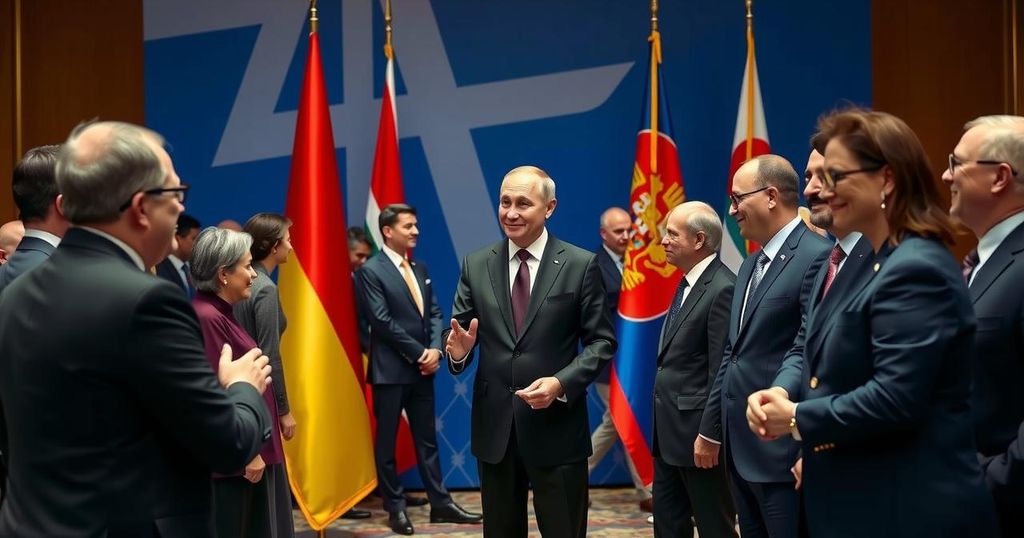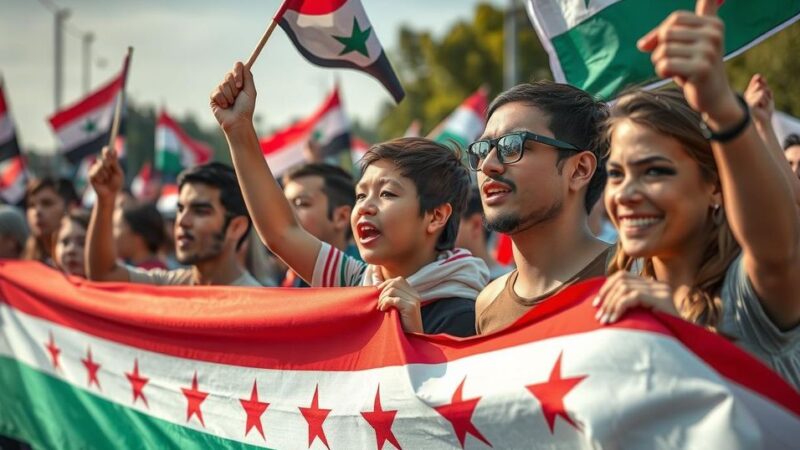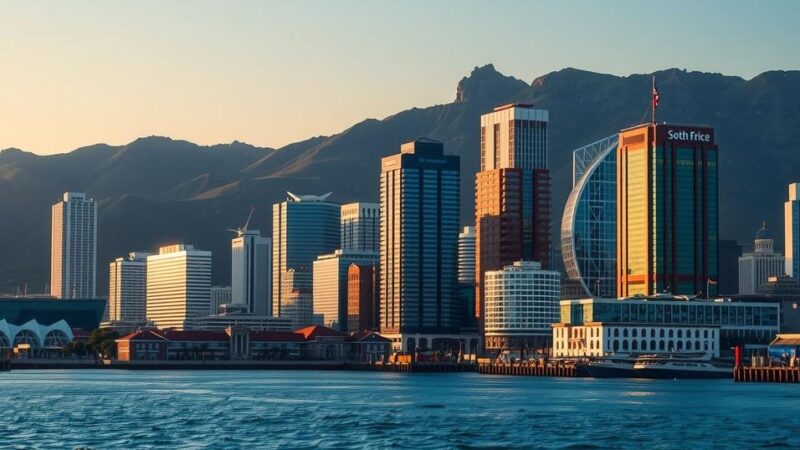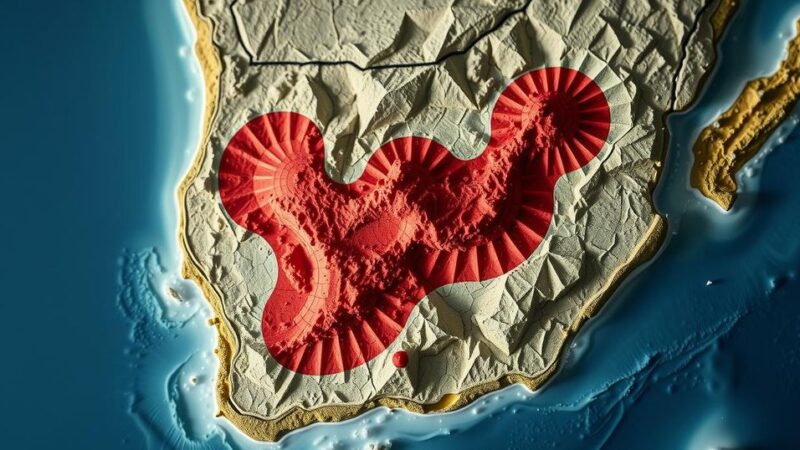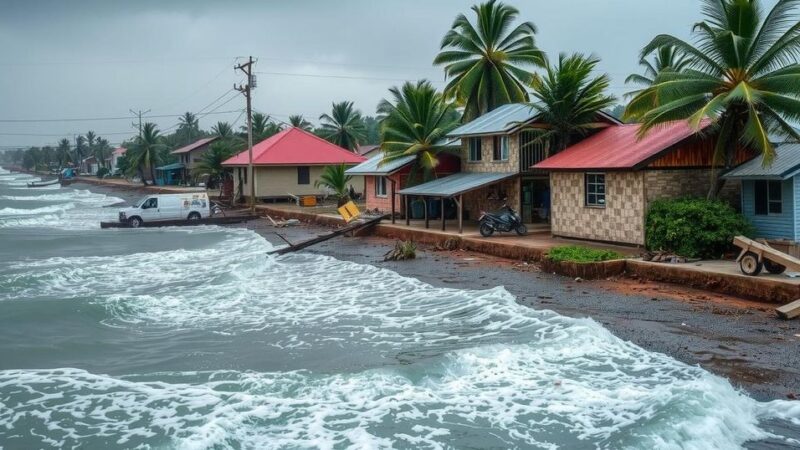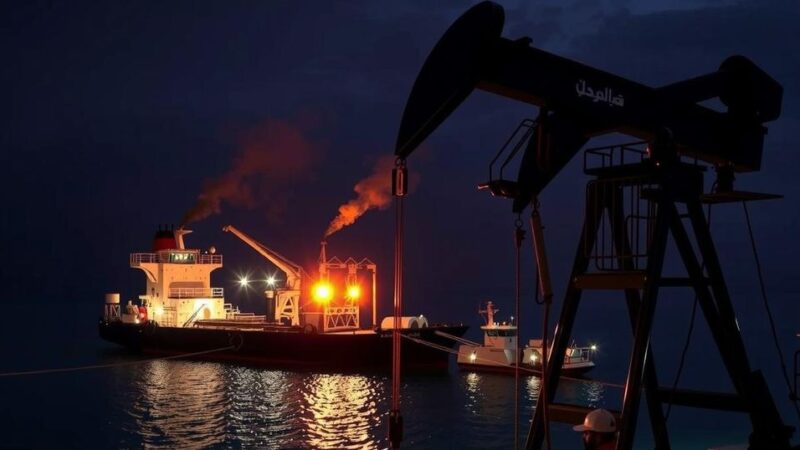The recent Brics summit in Russia saw President Vladimir Putin hosting 36 world leaders from nations including China, India, and Iran, aiming to counter Western isolation. Key discussions centered on economic collaboration and diminished reliance on the US dollar. The gathering illustrates a potential shift towards a new global order and reflects growing solidarity among emerging economies, despite differing ideological stances among members.
During the recent Brics summit in Russia, President Vladimir Putin hosted representatives from 36 countries, including significant global players such as China, India, and Iran. This gathering aims to project Moscow as a central figure in an increasingly multipolar world, despite Western ostracism and the looming threat of criminal charges from the International Criminal Court (ICC) concerning the abduction of Ukrainian children. Reports regarding the participation of UN Secretary-General António Guterres were unclear, as his spokesperson offered no definitive statement on his involvement. This summit marks the largest international assembly overseen by Putin since the onset of Russia’s full-scale invasion of Ukraine in February 2022. He is scheduled to engage in bilateral discussions with key leaders, including Xi Jinping and Narendra Modi, while also coordinating additional meetings with leaders from various nations, signaling a desire to strengthen alliances further. Brics, originally composed of Brazil, Russia, India, China, and South Africa, has amended its membership to include several new nations such as Egypt and the United Arab Emirates, illustrating its intent to create a significant alternative bloc against Western economic dominance. This expansion includes applicants from Turkey and Saudi Arabia who are exploring membership, indicating the bloc’s growing influence. Among the attendees, key political leaders from nations like Algeria, Azerbaijan, Belarus, and Mexico were also present, reflecting diverse global perspectives. Iranian President Masoud Pezeshkian expressed a sentiment aligned with the summit’s goals, stating, “Brics can be a way out of American totalitarianism and create a path of multilateralism.” However, differing motivations among members pose a risk to the ideological cohesion of Brics. While India and Brazil share some objectives to reduce dollar dependency, they remain cautious relative to the firmer positions of China and Russia on this front. This complex dynamic is further complicated by Brazil’s assertion that Brics is not antagonistic towards any entity. Analysts like Alex Gabuev from the Carnegie Russia Eurasia Centre have posited that this summit signifies a crucial turning point for Russia, encapsulating the message that the nation is not isolated but remains integral to shaping the future international order. Putin’s absence from the previous summit in Johannesburg, where capture on the ICC warrant could have forced his hosts’ hand, underscores the geopolitical sensitivities at play. Putin’s prospects may be buoyed by potential political shifts, including the prospect of Donald Trump returning to the White House and increasing pressures in European nations to negotiate with Russia amid ongoing fatigue regarding the conflict in Ukraine. The future of this conflict will hinge significantly on these unfolding events, including Guterres’ attendance at the summit, which could carry substantial implications on the international stage. In summary, while Brics is not fundamentally a security coalition, its formation serves as a pathway to develop economic strategies that lessen vulnerability to U.S. sanctions and embrace alternative currencies such as the yuan. Despite the bloc’s substantial economic power, it still faces limitations in international financial influence due to the structure of voting within global institutions like the International Bank for Reconstruction and Development (IBRD).
The Brics summit serves as a platform for emerging and developing economies to collaborate and shift the existing global order, which has been heavily influenced by Western nations. As Russia faces mounting pressure from the international community—particularly from Western countries due to its actions in Ukraine—this summit aims to demonstrate solidarity among various nations that seek to counterbalance Western economic and political influence. The growing membership of Brics reflects a shift towards a multipolar world where these nations strive for greater autonomy in economic dealings and reduced reliance on traditional Western-centric financial systems.
The Brics summit in Russia underscored ongoing geopolitical shifts and the desire among emerging economies to create a counterbalance to Western dominance, particularly through economic collaboration and strategic partnerships. Putin’s hosting of this significant international assembly aims to bolster Russia’s image as a vital player in shaping a new global order, even amid criminal charges and international isolation. The diverse participation of leaders from various countries highlights a united front among emerging economies, showcasing their intent to forge an alternative path in the global political and economic landscape.
Original Source: www.theguardian.com

